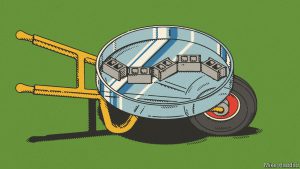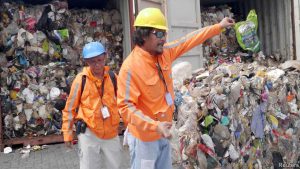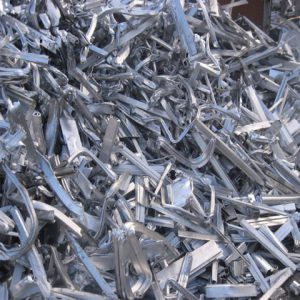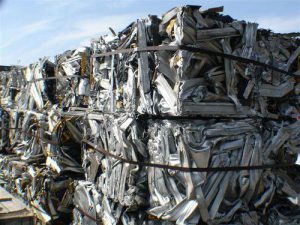Author: Amy Cheng
21 October, 2019
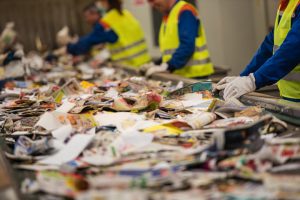
Recycling services across Victoria’s councils are inconsistent and confusing, a report says.
Decentralisation in Victoria’s resource recovery sector is hindering efforts to improve recycling, according to the state’s infrastructure advisory body.
Infrastructure Victoria raises the concerns in its Recycling and resource recovery infrastructure report, saying decisions and activities surrounding the way the state manages waste are being made by multiple individuals, businesses and governments.
“In a decentralised sector such as this, market failures can contribute to a situation where the actual outcomes seen in the sector may not align with public policy objectives because the motivations of businesses and households do not align with those of government,” the report says.
“This is because each individual makes the correct decision for themselves, but those may be the wrong decisions for the group.”
Recycling services across local councils in Victoria also have different standards for materials and approaches to organics collection.
“Differences between council approaches can lead to confusion and contamination of material streams,” the report says.
“In some councils, there is no separate organics collection at all, representing a significant missed opportunity.”
Confusion and inconsistencies
The report says these inconsistencies are acting as a “handbrake” to improving the recycling system in the state.
“A common theme in our stakeholder feedback is that these differences are acting as a handbrake on Victoria improving its performance in recycling and resource recovery, because it is difficult to provide a consistent message to the community on what can and cannot be recycled,” the report says.
Infrastructure Victoria surveyed 1,000 Victorians to understand their attitudes towards waste at home.
It found widespread confusion about recycling, particularly in regards to what can go into a recycling bin, was one of the barriers to better recycling.
“Excess product packaging is increasingly a frustration for Victorians, with the majority of people trying to buy products with recycled packaging or without excess packaging,” the report says.
However, out of those surveyed, the majority of them felt it was important to reduce landfill, with 93 per cent of those surveyed agreeing that it was important, and 85 per cent saying they consistently recycled when provided with a kerbside recycling bin.
“Victorians’ generally positive attitude toward recycling presents an opportunity for the Victorian Government to take action to improve the resilience and sustainability of the recycling and resource recovery sector in Victoria and deliver better outcomes for Victorians,” the report said.
Policy levers
Infrastructure Victoria has identified a number of potential policy levers that could help the state government to meet its key objectives for the waste sector.
These include setting targets to incentivise performance, direct investment in services or infrastructure where market failures exist, using pricing mechanisms to influence behaviours and legislating to motivate change.
Ways of meeting waste objectives
- performance incentives
- direct investment in services and infrastructure
- pricing mechanisms
- legislation
“In the majority of cases of market failure, a combination of policy levers and remedies is most likely to succeed,” the report said.
“In the context of the decentralised waste management model in Victoria, where market failures are observed across the different stages of the waste lifecycle, single and centralised solutions are unlikely to be effective.”
Infrastructure Victoria will deliver its advice to the government next April on the infrastructure required to improve the performance of Victoria’s recycling and resource sector.
Link: https://www.governmentnews.com.au/decentralised-system-a-handbrake-to-better-recycling/
